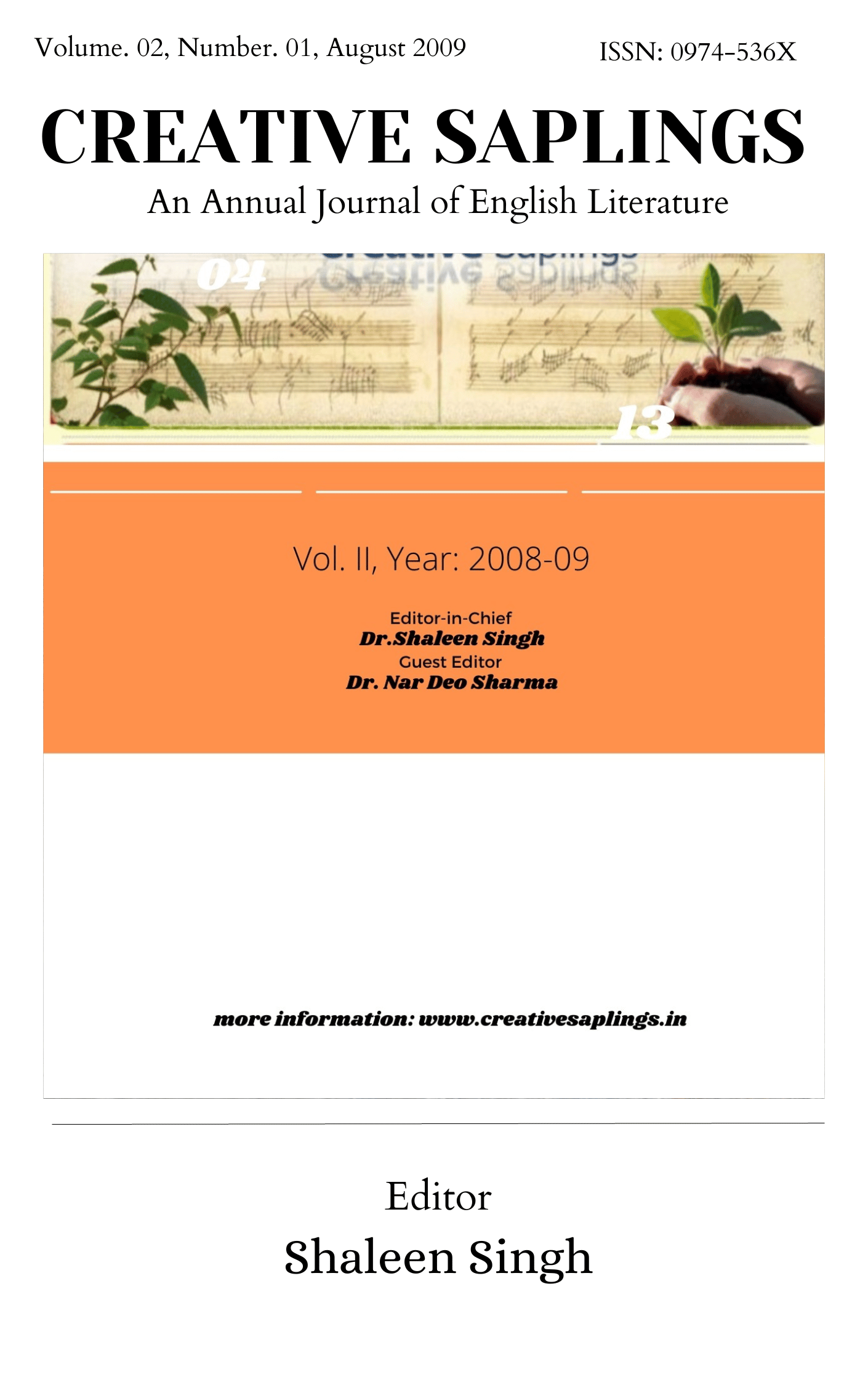Submissive To Assertive: Metamorphosis of Rani In Karnad’s Nagamandala
DOI:
https://doi.org/10.56062/gtrs.2009.2.1.58Keywords:
Indian English Drama, cultural hypocrisy, socio-cultural identity, Gender discrimination, repression and alienation.Abstract
Beginning in the early nineteenth century, Indian English Drama has walked a gruelling path to the present, where it has received a breath of fresh air and life from emerging dramatists such as Asif Currimbhoy, Girish Karnad, Vijay Tendulkar, Mahesh Dattani, and others. Girish Karnad is a name that many people regard among this new generation of playwrights. He is a well-known playwright as well as a critically acclaimed film actor. Karnad began his writing career with Yayati and has since written a number of thought-provoking and symbolist plays steeped in myth and local culture. Nagamandala (1988) is a play that takes its inspiration from popular myth and oral stories centred on the King Cobra, 'Naga,' but raises issues that are as relevant today as they were in the past. It discusses the man-woman relationship, a woman's position and identity, psychology, and the impact of social and cultural modes on the feminine psyche. This paper is a modest attempt to mark the metamorphosis in Rani, a character in Karnad’s Nagamandala
Downloads
References
Girish Karnad, ‘Nagamandala’, Collected Plays, Vol. I, (New Delhi: Oxford University Press, 2006)
Santosh Gupta, ‘Naga-Mandala: A Story of Marriage and Love’, The Plays of Girish Karnad: Critical Perspectives, ed. Jaydipsinh Dodiya, (New Delhi: Prestige Books, 1999)
M. Sarat Babu, ‘The Concept of Chastity and Naga-Mandala’, The Plays of Girish Karnad: Critical Perspectives, ed. Jaydipsinh Dodiya, (New Delhi: Prestige Books, 1999)
M. Rajeshwar, ‘The Inner World of Indian Women: Neurotic Characters of Indian Women Novelists’, Feminism and Literature, ed. Veena Noble Dass, (New Delhi: Prestige Books, 1995)
Peter Barry, ‘Psychoanalytic Criticism’, Beginning Theory: An Introduction to Literary and Cultural Theory (New York: Manchester University Press, 2007)
Santosh Gupta, ‘Naga-Mandala: A Story of Marriage and Love’, The Plays of Girish Karnad: Critical Perspectives, ed. Jaydipsinh Dodiya, (New Delhi: Prestige Books, 1999)
Sudhir Kakar, ‘The Inner World’, rpt. The Indian Psyche, (Oxford University Press, 1996)
Salman Rushdie, Shame, (London: Vintage, 1995)
V. Rangan, ‘Myth and Romance in Nagamandala or their Subversion’, Girish Karnad’s Plays: Performance and Critical Perspectives, ed. Tutun Mukherjee, (New Delhi: Pencraft International, 2006)
M. Sarat Babu, 1999.
Santosh Gupta, 1999.

Downloads
Published
Issue
Section
License
Copyright (c) 2022 Dr. G.A Ghanshyam

This work is licensed under a Creative Commons Attribution-NonCommercial 4.0 International License.





